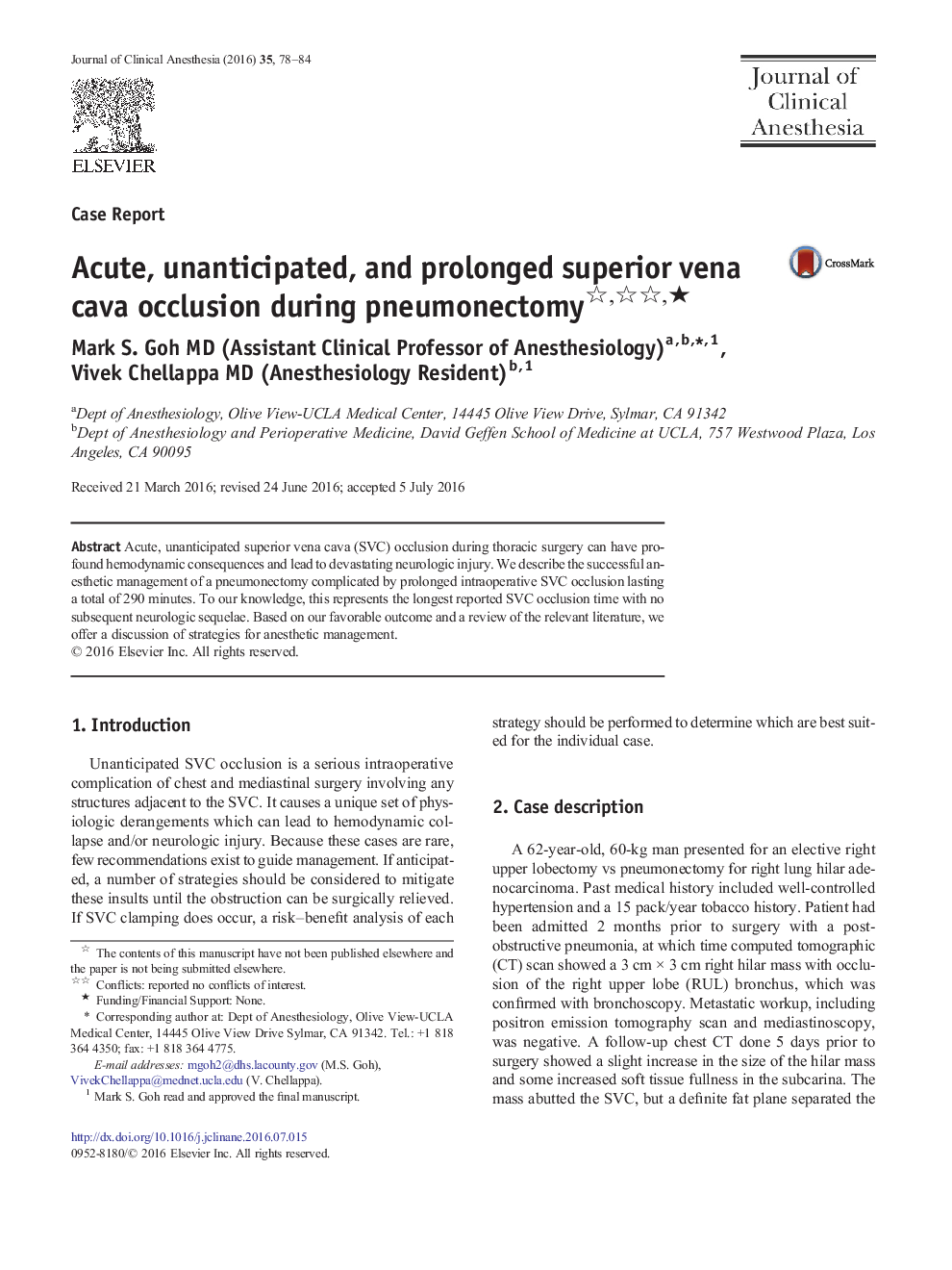| Article ID | Journal | Published Year | Pages | File Type |
|---|---|---|---|---|
| 5884363 | Journal of Clinical Anesthesia | 2016 | 7 Pages |
â¢Unanticipated SVC occlusion is a serious intraoperative complication of chest and mediastinal surgery involving any structures adjacent to the SVC. It causes a unique set of physiologic derangements which can lead to hemodynamic collapse and/or neurologic injury.â¢Because these cases are rare, few recommendations exist to guide management. If anticipated, a number of strategies should be considered to mitigate these insults until the obstruction can be surgically relieved.â¢If SVC clamping does occur, a risk-benefit analysis of each strategy should be performed to determine which are best suited for the individual case.
Acute, unanticipated superior vena cava (SVC) occlusion during thoracic surgery can have profound hemodynamic consequences and lead to devastating neurologic injury. We describe the successful anesthetic management of a pneumonectomy complicated by prolonged intraoperative SVC occlusion lasting a total of 290 minutes. To our knowledge, this represents the longest reported SVC occlusion time with no subsequent neurologic sequelae. Based on our favorable outcome and a review of the relevant literature, we offer a discussion of strategies for anesthetic management.
